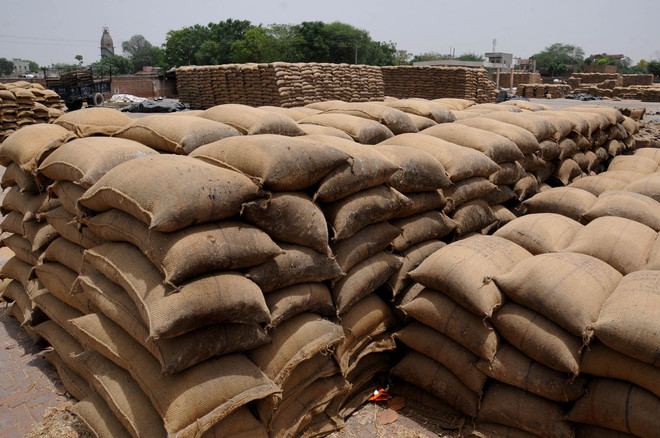Despite floods, Punjab’s paddy basket weighs 210 lmt, biggest in five years
By Ruchika M Khanna
Notwithstanding the two floods that played havoc in Punjab when the paddy had been transplanted in the fields, farmers have contributed the maximum to the central pool that procured 185.85 lakh metric tonnes of paddy. The paddy procurement season ended today.

The paddy production is 210 lmt this year with farmers keeping over 25 lmt for their personal use. This is the highest production of paddy in the past five years. Earlier, in 2020, the paddy production in the state had peaked at 208 lmt.
This year, the paddy procurement season was extended in the wake of delayed harvest by farmers after the rain in July and later in August had damaged the transplanted seedlings, forcing farmers to re-transplant paddy at many places across the state.
Data gathered by The Tribune from the Punjab Mandi Board shows that paddy procurement is up by 3.40 lmt over last year. In fact, in the wake of the paddy procurement from most other states showing a decline, Punjab’s higher contribution to the central pool has been the only bright spot in foodgrain procurement this year.
“The yield this year has remained high at 69.39 quintal per hectare, which is up by over 4 quintals over last year’s yield,” Director, Agriculture, Jaswant Singh.
This high paddy procurement also means a “problem of plenty” when it comes to storage of the shelled rice. Though the paddy procured this year has been sent to rice shelling units, which will begin shelling rice and with an out-turn ratio of 67 per cent, they will begin to send the rice (about 125 lmt) to the Food Corporation of India from January 2024. It is learnt that of the 167 lmt of storage space available with the FCI and the state government, only 45 lmt of space is presently available for storing this year’s rice.
“We have increased the amount of foodgrains stored in Punjab to the recipient states. From 13 lmt of foodgrain movement till last month, we have increased the movement to 15 lmt per month for December to February. This will give us another 45 lmt of storage space. As the rice delivery to the FCI godowns increases from March onwards, we will also increase movement of old stocks of foodgrains, thus ensuring that all grains are stored in a scientific manner,” said B Srinivasan, General Manager, FCI Punjab Region.
This article has been republished from The Tribune.

